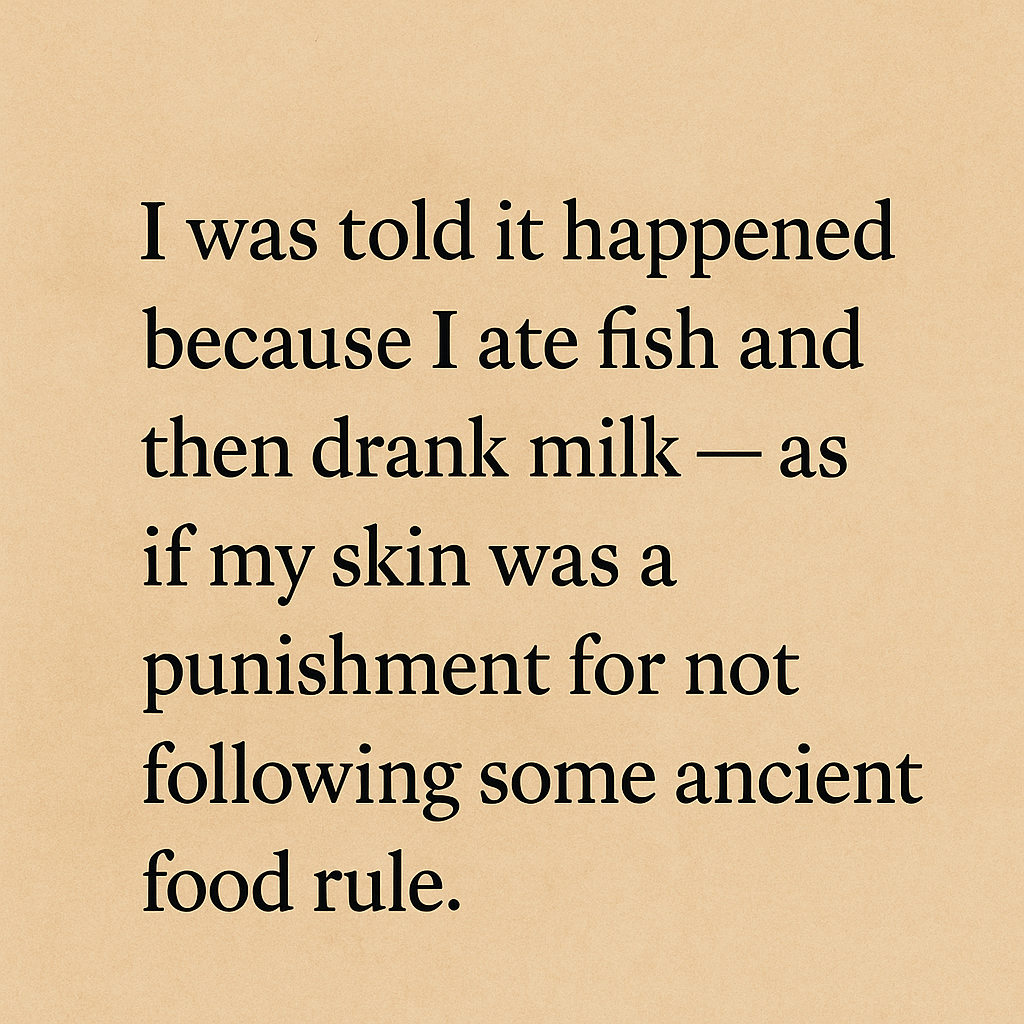
I Was Told I Needed Fixing: Growing Up Desi with Vitiligo
Share
I grew up under the warm smells of masala chai, family dinners filled with laughter, and the unspoken pressure to be “perfect.” Like many Desi kids, I was taught to respect my elders, study hard, and look a certain way. But there was one thing about me that didn’t fit the mold — my skin.
Vitiligo first appeared in small patches. At first, it was whispers — quiet questions from relatives, side glances at weddings. Then came the louder voices:
“Put this cream on.”
“Don’t go in the sun.”
“It’ll go away.”
“We’ll find a cure.”
I was told it happened because I ate fish and then drank milk — as if my skin was a punishment for not following some ancient food rule.
And slowly, my worth started becoming tied to how I looked. The more my skin changed, the more I felt like I was falling short of being “enough.” I carried shame I didn’t deserve. I scrubbed and covered wishing my skin to “go back to normal.” I felt like I had to apologize for existing in a body that looked different.
But the truth is, I didn’t want a cure — I wanted acceptance.
But something shifted. Slowly, quietly, I started reclaiming the parts of me I was taught to hide. I met others with vitiligo. I saw beauty in them and, eventually, I saw it in myself. I began to question why we equate sameness with beauty — why “normal” had to mean unblemished or uniform.
Spotted Chai was born from that questioning. From the pain, yes — but also from the power that comes when you stop seeking permission to love yourself. My patches are not problems. They’re part of a larger story — of heritage, resilience, and identity.
To anyone reading this who has ever felt “less than” because of how they look — especially in Desi spaces that can be harsh about appearance — know this:
You do not need fixing.
You are not a before story waiting for an after.
You are enough, exactly as you are.
Spotted Chai is for us — for the ones who carry culture and difference in the same breath. For the ones learning to be proud, not in spite of our spots, but because of them.
